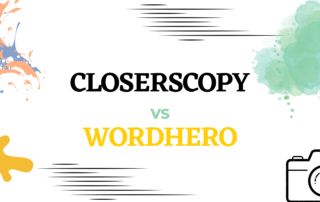Rytr vs CopyAI: Which one should you go for?
Benefits of using an Artificial Intelligence copywriting tool? AI writing tools are gaining immense popularity in the writing circle. Yes, they have technical limitations, and no, they will not replace human copywriters, but they have many positives. They help you save time and eliminate writer's block. [...]






